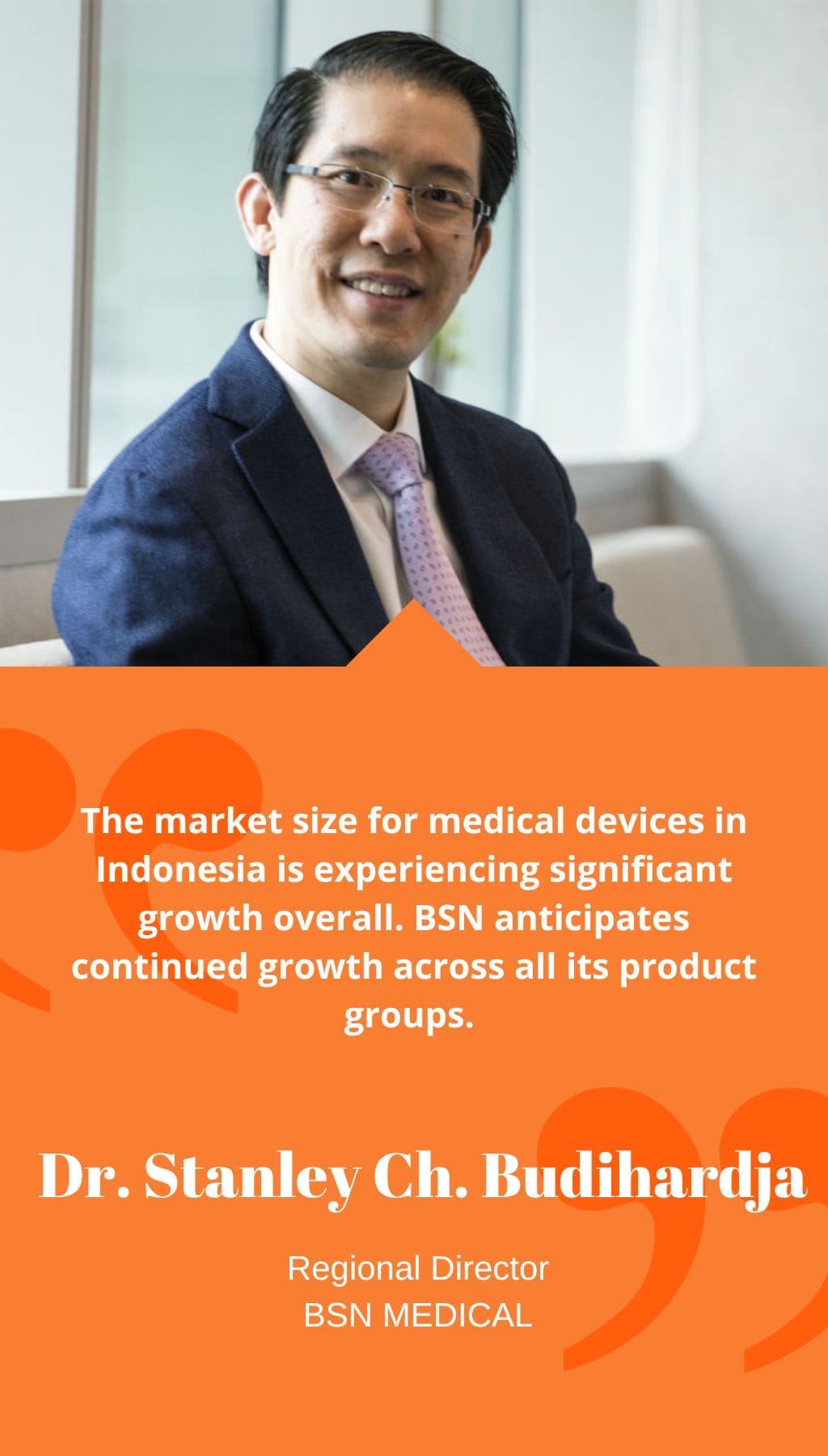
- Indonesia | 3 August 2015

Please describe the evolution of BSN Medical’s presence in Indonesia.
BSN Medical, established in 2001 as a joint venture between Beiersdorf and Smith & Nephew, has had a presence in Indonesia since its inception. Initially, it faced challenges in remaining competitive due to its inability to match the products of its parent companies. Consequently, BSN’s product portfolio in its early years was relatively simple and commoditized. However, when BSN was acquired by Montagu, a private equity firm, in 2006, its growth and product portfolio expanded significantly, establishing a stronger global presence. In 2012, BSN went through another change in ownership, being acquired by EQT, another private equity firm. Today, Indonesia has become one of BSN’s most successful regions worldwide.
What business units does BSN have in Indonesia, and how do its Indonesian operations benefit from BSN’s global network?
BSN employs approximately 200 people in Indonesia who are primarily engaged in sales and marketing. BSN leverages its global network of research and development (R&D) and manufacturing facilities. Most of BSN’s products in Indonesia are imported from its specialty plants located worldwide, with wound care products coming from Germany and orthopedic products from the United States. BSN launches four or five new products globally each year, and in 2015, it plans to introduce more than 10 new products specifically in Indonesia.
What is included in BSN’s profile of product offerings?
BSN focuses on two main therapeutic areas: wound care vascular and orthopedics. Its product range for wound care includes simple adhesive bandages as well as advanced wound management solutions. BSN excels in advanced wound management, particularly in areas such as compression therapy, where it is the world’s largest provider of medical devices under the brand Jobst. In total, BSN offers over 200 wound care products and variants. In orthopedics, BSN provides a comprehensive portfolio, including casts, braces, tapes, and straps, addressing ailments from the acute phase to rehabilitation. BSN’s goal is to offer therapeutic solutions rather than just products, striving to fill any gaps that may exist within its portfolio to meet patient needs.
What differentiates BSN’s products from the competition?
As a global company headquartered in Germany, BSN prioritizes quality products supported by extensive R&D. Compared to low-cost substitutes, BSN’s products exhibit superior durability. Each BSN product undergoes significant R&D investment, reflecting the overall quality that sets them apart.
How have BSN’s products performed in the Indonesian market, considering the trade-off between quality and price?
Since its establishment in 2001, BSN’s Indonesian operations have grown sevenfold, indicating the market’s readiness for growth and the demand for high-quality medical device products. Although BSN’s products are typically more expensive than alternative solutions in Indonesia’s price-sensitive market, evidence suggests that high-quality products provide more effective therapeutic outcomes from a total cost perspective. Additionally, these products offer greater comfort to customers. However, continuous education is essential to develop consumer mindsets regarding the value of high-quality products.
What implications does the dominance of imported medical devices have for the development of the sector in Indonesia?
Currently, more than 90 percent of medical devices used in Indonesia are imported, posing challenges for the industry’s health and sustainability. Even basic medical device products are being imported, primarily through trading companies focused on short-term results. However, there is an opportunity for the development of domestic medical device manufacturing facilities in Indonesia, although it requires long-term investment. BSN sees this as a potential growth strategy for the future.
What growth prospects are present in Indonesia’s medical devices sector?
The market size for medical devices in Indonesia is experiencing significant growth overall. BSN anticipates continued growth across all its product groups. BSN’s products are currently present in 80 to 90 percent of the country’s hospitals, but there is a desire to further expand its presence in pharmacies. As Indonesia’s middle class continues to grow, consumer awareness and appreciation of quality medical device products are increasing. In this regard, BSN is well-positioned to capture potential growth opportunities.














